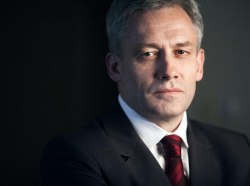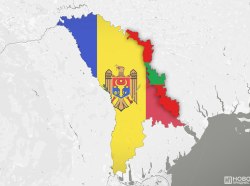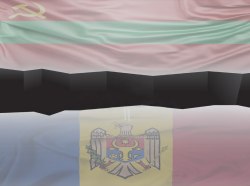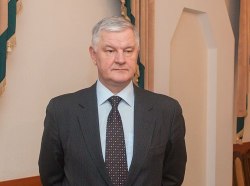Negotiations between Russia and the United States and NATO on the security and non-expansion of the North Atlantic bloc, which took place on January 10-12 this year, actually failed.
However, serious analysts did not expect anything else. The point is that the issue is now being addressed whether the anti-democratic unipolar world with the hegemony of the States will continue or whether its place will be taken by the natural order of things when there will be several centers of power and influence in the world that balance each other.
The Americans and their satellites not only rejected the Russian proposals but also committed three provocations.
Some of the biggest provocations include:
1. Declaration of willingness to officially accept Sweden and Finland into NATO. Although, at present, these countries are playing along with Washington and NATO headquarters in Brussels with might and main.
2. Statement on the possibility of imposing sanctions not only against Russia but also against the leadership of Russia: President Vladimir Putin, Prime Minister Mikhail Mishustin, and several other government officials and security forces. This is a demonstration of readiness to go for a complete break in relations with Moscow. Putin previously admitted this possibility.
If we talk globally, we can include the Secretary-General of the aggressive NATO bloc, Jens Stoltenberg's statement regarding the Pridnestrovian Moldavian Republic. The world media quotes the instigator:
“Russia has armed forces in Georgia, Ukraine, and Moldova. These forces are there without the consent of the governments of these countries. Nobody invited them there. Today, NATO countries called for the withdrawal of these forces and respect for the territorial integrity and sovereignty of Georgia, Ukraine, and Moldova. These are the fundamental principles of respecting the inviolability of borders, ensuring peace and security in Europe. NATO is ready to engage in dialogue with Russia, but we will never compromise our principles. We will never compromise the territorial integrity and sovereignty of European countries.”
As for the Pridnestrovian Moldavian Republic, Jens Stoltenberg completely controlled by the Washington elite, not only voices the put-down information but also demonstrates an elementary ignorance of the facts. But it is impossible to run away from them.
Here are just a few facts.
Fact No. 1. Russian (and Soviet in 1917-1991) troops have been on the left bank of the Dniester, in the part of the present PMR, since 1791. When the Treaty of Jassy marked the expulsion of the Ottoman invaders and the transition of the region under the stable and secure control of Russia. On the right bank of the Dniester (and the PMR is also partially located there in terms of the town of Bendery and several villages), Russian (Soviet) troops were located in 1812-1917, in 1940-1941, and 1944-1991. In the Pridnestrovian part of the right bank, Russian troops are legally located to this day, since the PMR and Russia are actually in a military-political union, and they also profess a single integration project - the Eurasian one.
Fact No. 2. On June 23, 1990, the pro-Romanian nationalist leadership of the Republic of Moldova announced the liquidation of the Moldavian SSR, created on August 2, 1940, which united Moldova, Pridnestrovie and, Gagauzia. The documents adopted in 1990 at the parliamentary session spoke of the "illegality" of the creation of a united Soviet Moldavia. Consequently, the Chisinau nationalists acted as conscious dissenters and separatists both to secession from the Soviet Union, which included the MSSR and to the MSSR itself, blowing the united republic up with their declaration. And, on the contrary, rejecting the Chisinau decisions, the Pridnestrovians tried to act as defenders of the integrity of both the USSR and the Moldavian SSR, which the nationalists destroyed on June 23, 1990. And only a few months later, on September 2, 1990, the multinational people of Pridnestrovian, seeing that it was impossible to reason with the nationalists, created their state.
Fact No. 3. On September 17, 2006, based, among other things, on the generally accepted European practice of nationwide referendums and plebiscites, the Pridnestrovian people directly expressed their will by voting for the PMR independence and union with Russia. This unambiguously meant treating the Russian troops as fraternal and allied and deploying them in the Republic on an indefinite basis. It was also legal from every angle, since 16 years before that, united Moldova was destroyed by nationalists who were preparing to join it to Romania and declared the creation of the Moldavian SSR an "illegal" act for this.
Fact No. 4. Russian troops in the PMR are divided into a) the remnants of the 14th Guards Army represented by the Operational Group of Russian Forces (OGRF), stationed here since time immemorial, b) the peacekeeping forces that were brought to the banks of the Dniester under the peace agreement from July 21, 1992, which, among other things, bears the then President of the Republic of Moldova, Mircea Snegur`s signature. The agreement is international and Moldova does not dispute its legitimacy. At the levels of the UN, OSCE, and other international organizations, it was also not disputed.
It is quite possible that Jens Stoltenberg, who, by the way, according to data from publicly available sources, was the object of development of the USSR KGB under the pseudonym Steklov and, as a result, as he insistently emphasizes, refused to cooperate, may not know all this. The US Secretary of State Anthony Blinken, whose ancestors themselves moved to the States from Russia, who on January 13 also stated that Russia allegedly deployed its troops on the Dniester "without an invitation", may also not know this.
But what they know for sure is that international documents speak of the possibility of the withdrawal of Russian soldiers only after finding a comprehensive political settlement of the Moldovan-Pridnestrovian conflict. And by the way, the 5+2 format, of which both Russia and the United States are members, is looking for such a solution in the international arena. Both of these great powers recognize that the conflict has not been resolved. Therefore, there is no reason to talk about the Russian troops` withdrawal.
Moreover, taking into account the ineffectiveness of the past negotiations between Russia and the United States and between Russia and NATO, the role of Russian soldiers as the guardians of peace on the Dniester is only increasing for Pridnestrovians. For Pridnestrovians, the only real guarantee of peace is the Russian soldiers and officers` indefinite presence on the banks of the Dniester.
Back in the day, under the 1995 agreement, Ukraine could also play a peacekeeping role on an equal footing with Russia by sending its corresponding contingent to the PMR but Kyiv sovereign decision was to limit its peacekeepers to 10 observer officers. Tiraspol treated this with respect.
Now, in current realities, the role of the Russian-Pridnestrovian de facto union is only increasing.
This is what the Pridnestrovian Moldavian Republic will proceed from in its foreign policy.
Andrey Safonov, political scientist
January 13, 2022








